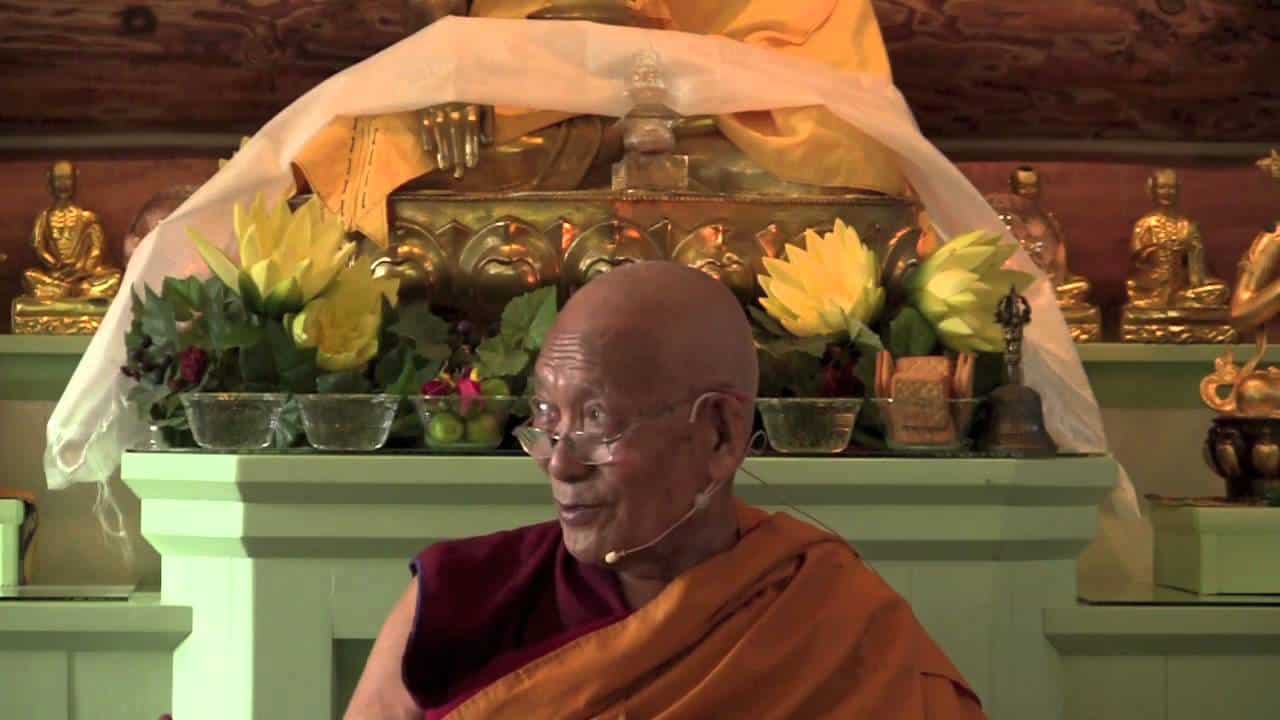Chapter 5: Verses 103–106
Chapter 5: Verses 103–106
Part of a series of teachings on Aryadeva’s 400 Stanzas on the Middle Way given on an annual basis by Geshe Yeshe Thabkhe from 2013-2017.
- Fourteen questions unanswered by the Buddha
- How the Buddha taught sentient beings according to their dispositions
- Importance of motivation, as it determines whether an activity is virtuous or non-virtuous
- The power of pure bodhicitta motivation
- Merit of generating the first ultimate bodhicitta
- Conventional and ultimate bodhisattvas
Questions and answers
- What is the subtle mind?
- Helping the dying
- Aspirational bodhicitta and bodhisattva vows
Geshe Yeshe Thabkhe
Geshe Yeshe Thabkhe was born in 1930 in Lhokha, Central Tibet and became a monk at the age of 13. After completing his studies at Drepung Loseling Monastery in 1969, he was awarded Geshe Lharampa, the highest degree in the Geluk School of Tibetan Buddhism. He is an emeritus professor at the Central Institute of Higher Tibetan Studies and an eminent scholar of both Madhyamaka and Indian Buddhist studies. His works include Hindi translations of The Essence of Good Explanation of Definitive and Interpretable Meanings by Lama Tsongkhapa and Kamalasila's commentary on the Rice Seedling Sutra. His own commentary, The Rice Seedling Sutra: Buddha’s Teachings on Dependent Arising, was translated into English by Joshua and Diana Cutler and published by Wisdom Publications. Geshela has facilitated many research works, such as a complete translation of Tsongkhapa’s The Great Treatise on the Stages of the Path to Enlightenment, a major project undertaken by the Tibetan Buddhist Learning Center in New Jersey where he teaches regularly.


